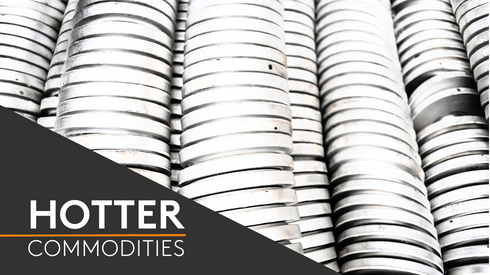The offer is the second reported in the market for the fourth quarter and is $20 per tonne higher than the first offer, sources said. At the point of publication, no producers could be reached for comment.
The offer is 28.9% higher than the cif MJP premium for the third quarter, which settled at $172-185 per tonne.
Fourth-quarter negotiations in 2020 were settled at $88 per tonne in October – close to a third of the new offer.
Several Japanese trading firms have started negotiations with producers for quarterly volumes but no deals have emerged, Fastmarkets heard.
At least two trading houses have extended fourth-quarter offers to the market. A trading house offered fourth-quarter MJP volumes on a cif basis at $230 per tonne in the week to 20 August.
A non-producer deal for fourth-quarter volumes was reported at $185 per tonne cif, although at the time of publication Fastmarkets could not independently verify the deal.
Some traders expect protracted negotiations over surging quarterly offers given a generally quieter market after the seasonal lull and low demand recovery.
Aluminium stocks in MJPs rose by 8% in June, climbing to a nine-month high, while aluminium units in LME warehouses have been continually declining since reaching a year-to-date high of 1.97 million tonnes on March 18. Stocks stood at 1.31 million tonnes on August 26, compared with 1.42 million tonnes a month before. They are down by 31.1% since mid-March.
“Premiums seem to be ahead of [themselves],” a Japanese trading house said after the first offer, at $230 per tonne, was reported.
Talks relating to the quarterly offers include current market fundamentals in China, given the 0.9% fall in aluminium production in July from June, sources said.
Ongoing power restrictions, which are affecting smelters in Guangxi and Inner Mongolia autonomous region, coupled with continuing production uncertainty in China indicate that current MJP offers are well-supported, according to at least one trader.
The arbitrage window opportunity into China has also improved in recent weeks. According to Fastmarkets’ calculations, the aluminium import arbitrage has narrowed to a loss of $7.25 per tonne on August 26, compared with a loss of $20.71 per tonne on August 19.
Larger trading houses have begun moving material toward China – they expect the arbitrage window to open, sources said.
Offers into China were heard on Thursday August 26 at a premium of at least $160 per tonne on a cif China basis, sources said.
Fastmarkets’ monthly assessment for aluminium P1020A premium, cif Shanghai rose to $150-165 per tonne on July 27, flat from June 29.
Fastmarkets twice-weekly assessed the aluminium P1020A (MJP) spot premium, cif Japan at $150-180 per tonne on Tuesday August 24, down by $10 per tonne from the week before.






